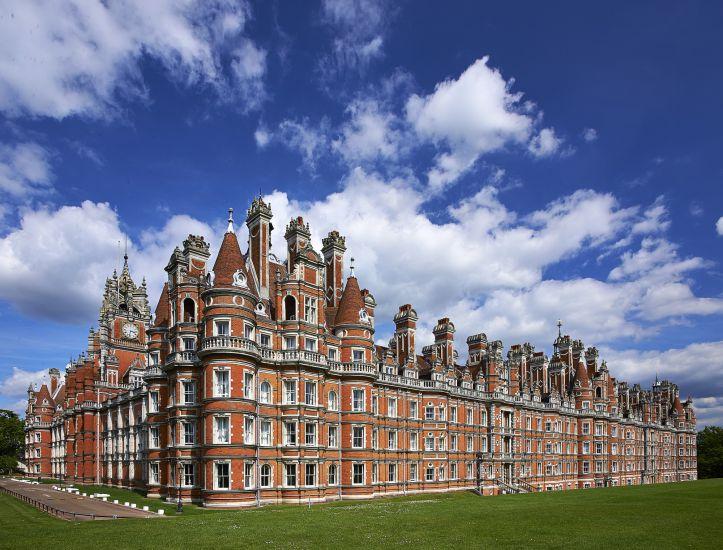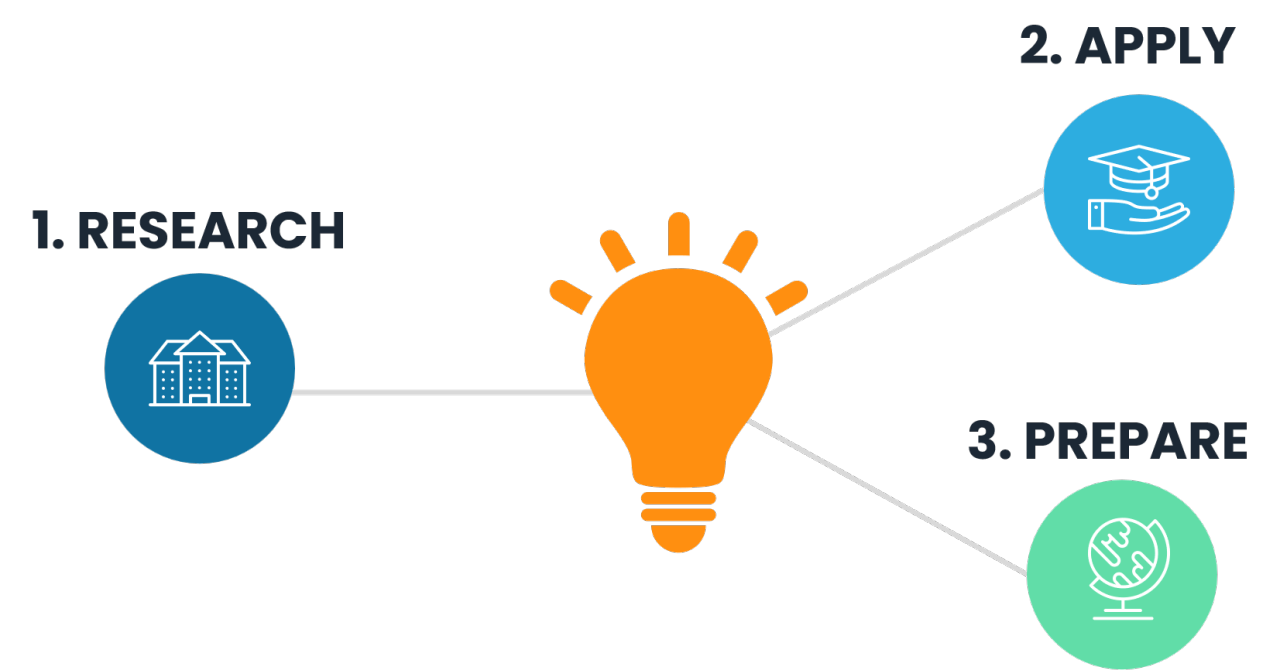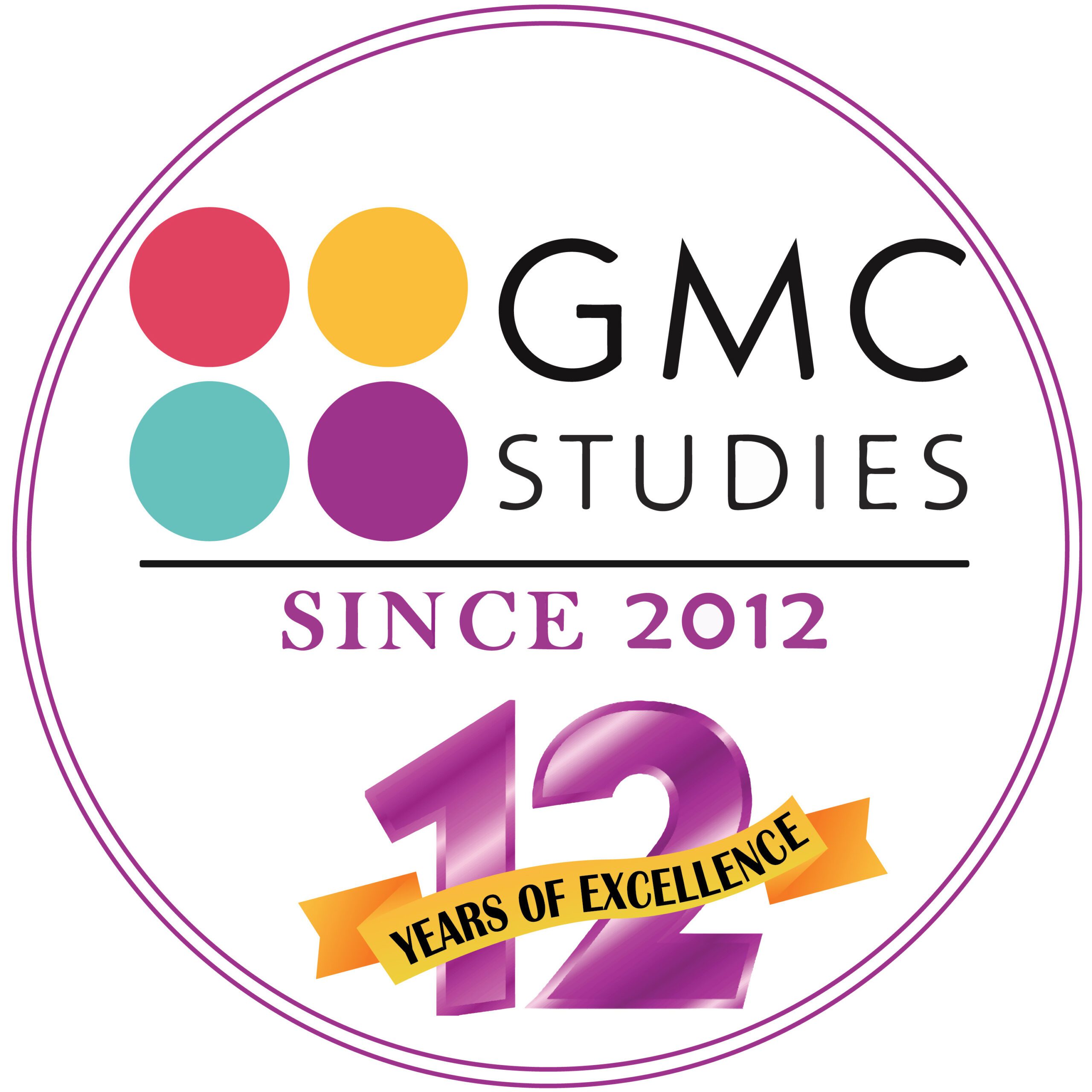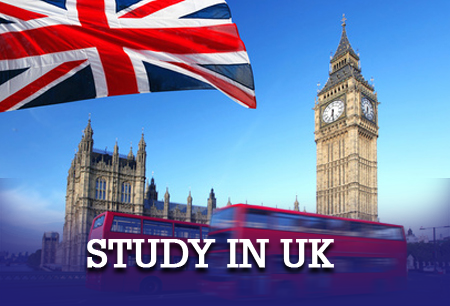Are you ready for a fun and exciting study abroad in UK? In the UK, studying isn’t just about getting a degree—it’s also about becoming part of a lively society, visiting historic towns, and seeing stunning landscapes. This guide is for people who are just starting to study in the UK. It will teach you everything you need to know, from how to get around the school system to how to find grants and adjust to life in a new country. Let’s jump right in and find out what chances are waiting for you across the pond!
Study Abroad in UK: Understanding The UK Education System
The UK education system is known for its exceptional standards and commitment to fostering innovative learning environments. Here’s an overview of the key stages:
1. Primary and Secondary Education:
- Primary Education: Children typically start primary school at the age of 5 and continue until they are 11. The curriculum covers core subjects such as English, mathematics, science, and often includes other subjects like history, geography, and art.
- Secondary Education: Secondary education begins at age 11 and continues until age 16. Students study a broad range of subjects, including core subjects like English, mathematics, and science, as well as additional subjects like languages, humanities, and the arts. At the end of secondary education, students typically take exams known as GCSEs (General Certificate of Secondary Education).
2. Further Education:
- Sixth Form or College: After completing their GCSEs, students have the option to continue their education in a sixth form or college. Here, they typically study for two years and take exams such as A-levels (Advanced Level) or vocational qualifications. A-levels are widely recognized and form the basis for entry into higher education.
3. Higher Education:
- Universities: Higher education in the UK is primarily offered by universities. Students can pursue undergraduate degrees, postgraduate degrees, or research programs. Undergraduate degrees usually last three to four years, while postgraduate degrees can range from one to two years.
- Key Features: UK universities are known for their research-driven approaches and state-of-the-art facilities. They emphasize critical thinking, creativity, and independence, preparing students to excel in their chosen fields.
Benefits of the UK Education System:
- Structured Pathway: The UK education system offers a structured pathway from primary through higher education, providing students with a clear progression route.
- Emphasis on Skills: The system prioritizes critical thinking, creativity, and independence, equipping students with skills valued by employers worldwide.
- Global Recognition: Qualifications from UK universities are highly regarded globally, opening doors to international career opportunities.
As you consider studying abroad in the UK, familiarize yourself with the structured educational pathway it offers. From primary and secondary education to further and higher education, the UK education system is designed to support your journey towards achieving academic excellence and fulfilling your career aspirations on a global scale.
Top Universities in the UK

The United Kingdom is home to a diverse range of prestigious universities, renowned worldwide for their academic excellence and research contributions. Here are six of the top universities in the UK:
| University | Overview | Why Choose | Unique Features | Programs |
|---|---|---|---|---|
| University of Oxford | One of the oldest and most prestigious universities in the world, with a history dating back over 900 years. | Known for its rigorous academic standards, diverse range of programs, and vibrant student community. | Oxford’s tutorial system provides personalized attention and fosters critical thinking skills. The historic college system offers a unique and enriching living and learning environment. | Offers a wide range of undergraduate and postgraduate programs across various disciplines, including humanities, sciences, social sciences, and more. |
| University of Cambridge | Another ancient institution, renowned for its academic excellence and groundbreaking research. | Offers a stimulating academic environment, world-class facilities, and a strong sense of tradition and innovation. | The collegiate system fosters close-knit communities within the larger university. Renowned libraries and museums provide invaluable resources for academic study and research. | Offers a wide range of undergraduate and postgraduate programs, including STEM fields, humanities, arts, and social sciences. |
| Imperial College London | A world-leading science, engineering, and medical research institution located in the heart of London. | Known for its cutting-edge research and innovative teaching methods, offering students the opportunity to study at the forefront of their fields. | Focuses on science, technology, engineering, and medicine, making it a hub for innovation and discovery. Central London location provides unparalleled access to industry and cultural opportunities. | Offers a wide range of undergraduate and postgraduate programs in science, engineering, medicine, and business. |
| London School of Economics and Political Science (LSE) | Renowned for its social science research and teaching, focusing on economics, politics, and related disciplines. | Offers a diverse and international student body, along with strong connections to industry and government. | LSE’s central London location provides opportunities for internships and networking. It has a strong reputation for research and is affiliated with numerous Nobel laureates. | Offers undergraduate and postgraduate programs in economics, politics, sociology, law, management, and related disciplines. |
| University of Edinburgh | One of Scotland’s ancient universities, known for its historic and picturesque campus, as well as its strong academic reputation. | Offers a wide range of programs, including arts, humanities, sciences, and professional degrees, with a focus on research-led teaching. | Edinburgh’s location in the capital of Scotland provides access to a vibrant cultural scene, while its research institutes contribute to innovation and discovery. | Offers undergraduate and postgraduate programs across various disciplines, including humanities, sciences, social sciences, and professional degrees. |
| University of Manchester | A redbrick university located in the vibrant city of Manchester, known for its world-class research and innovation. | Offers a multicultural and dynamic learning environment with a wide range of programs and strong links to industry. | Manchester’s research institutes and partnerships with industry offer opportunities for practical learning and collaboration. The city itself provides a rich cultural experience and excellent career prospects. | Offers undergraduate and postgraduate programs in various disciplines, including sciences, engineering, humanities, business, and more. |
Choosing the Right University and Course

Choosing the perfect university and course requires careful consideration of your academic interests and career goals. Here’s how you can make an informed decision:
1. Self-Assessment:
- Evaluate your strengths, interests, and long-term career aspirations.
- Consider your preferred learning environment, such as large research-focused universities or smaller, more intimate campuses.
2. Research:
- Dive into extensive research on different universities and their course offerings.
- Utilize resources like university websites, course catalogs, and academic forums to gather detailed information.
- Look for factors such as faculty expertise, research opportunities, and industry connections related to your field of study.
3. Virtual Open Days and Campus Tours:
- Attend virtual open days or arrange campus tours to get a feel for the university’s atmosphere and facilities.
- Pay attention to the campus environment, facilities, and resources available to students.
- Speak with current students and faculty members to gain insights into the academic and social aspects of university life.
4. Reach Out for Information:
- Don’t hesitate to contact admissions teams, current students, or alumni to ask questions.
- Inquire about specific courses, teaching styles, and support services available to students.
- Seek firsthand perspectives on the academic rigor and social environment of the universities you’re considering.
5. Considerations:
- Look beyond rankings and prestige to find a university that aligns with your personal and educational values.
- Consider factors like location, campus culture, extracurricular activities, and support services for international students.
6. Making the Decision:
- Compare your findings and weigh the pros and cons of each university and course.
- Consider how each option aligns with your academic and personal aspirations.
- Trust your instincts and choose the university and course that feels like the best fit for you.
By taking a thorough and thoughtful approach to university and course selection, you can ensure that your study experience in the UK is fulfilling and rewarding. Remember to consider your academic interests, career objectives, and personal preferences, and seek out as much information as possible to make an informed decision. This careful consideration will set the stage for a successful and enjoyable academic journey in the UK.
Navigating the Application Process

Embarking on a study abroad journey in the UK requires careful navigation through the application process. This guide provides a concise overview of the steps involved in applying for undergraduate and postgraduate programs, ensuring you’re well-prepared to pursue your academic aspirations in the UK.
| Step | Undergraduate Application (via UCAS) | Postgraduate Application |
|---|---|---|
| 1. Research and Preparation | – Understand course requirements – Determine if you need to take standardized tests – Ensure you meet English language proficiency requirements | – Understand course requirements – Determine if you need to take standardized tests – Ensure you meet English language proficiency requirements |
| 2. Application Process | – Register on UCAS website – Complete application form with personal details and educational history – Write a personal statement – Select up to five course choices – Arrange for references from teachers or counselors | – Apply directly to chosen university’s website or application portal – Complete application form with personal and academic details – Submit supporting documents – Write a personal statement |
| 3. Supporting Documents | – Personal statement – Educational transcripts – References | – Personal statement – Educational transcripts – Letters of recommendation – Proof of English language proficiency |
| 4. Adhering to Requirements | – Check specific requirements for each application – Submit all materials by specified deadlines | – Check specific requirements for each application – Submit all materials by specified deadlines |
| 5. Timelines and Deadlines | – Mark application deadlines on calendar – Start early to allow time for gathering materials and writing personal statement | – Mark application deadlines on calendar – Start early to allow time for gathering materials and writing personal statement |
| 6. Thoroughness and Punctuality | – Pay attention to detail – Submit all materials on time | – Pay attention to detail – Submit all materials on time |
Securing Funding and Scholarships
Navigating the financial aspects of studying in the UK requires early preparation and diligence. Many international students benefit from exploring a variety of scholarships, grants, and student loans designed to ease the burden of tuition and living expenses.
Key sources include university-specific scholarships, which often have criteria based on academic merit or field of study, as well as external scholarships from governments, non-profits, and private companies targeting students from certain regions or disciplines.
Applying for scholarships can be competitive, so it’s crucial to start your search well in advance, ensuring you meet all eligibility requirements and submission deadlines.
Additionally, consider contacting the financial aid office of your prospective universities for advice on available funding opportunities and application tips. Thorough research and a proactive approach can significantly enhance your chances of securing the financial support necessary to pursue your academic goals in the UK.
Understanding Visa Requirements

Securing the correct visa is a crucial step for international students planning to study in the UK. Depending on the duration and level of the course you’ve enrolled in, the visa you require may vary. It’s vital to meticulously review the visa requirements on the official UK government website to ensure you’re applying for the appropriate category.
Collecting the necessary documentation, such as proof of acceptance into a UK university, evidence of financial support for the duration of your stay, and confirmation of accommodation, is essential for a successful application. Begin this process early to allow ample time for any unforeseen delays or additional requests for information from visa processing centers.
Additionally, familiarizing yourself with the conditions of your student visa, including work rights and travel restrictions, will help you to plan your stay in the UK more effectively and avoid any complications during your studies.
Cost of Living and Financial Considerations
The financial aspect of studying abroad in the UK extends beyond tuition fees and encompasses various living expenses that international students need to prepare for. Housing, whether university dormitories or private rentals, often constitutes a significant portion of monthly expenditures. Groceries, dining out, and local transport can also add up, with costs varying significantly from one city to another.
For instance, living in London is considerably more expensive than in smaller cities or towns. Additionally, students should budget for health insurance, which is mandatory, and occasional leisure activities to ensure a well-rounded experience. By planning and managing these expenses carefully, students can alleviate financial stress and focus on their academic and cultural pursuits.
It’s advisable to research and compare costs in different regions and seek advice from current students or university financial aid offices to create a realistic and manageable budget.
Preparing for Life in the UK
Embarking on your educational journey in the UK also means adapting to a new cultural and social environment. To ease this transition, immerse yourself in understanding the nuances of British culture, from the local dialects to social norms. Research is key; explore online resources, watch UK-based shows, and connect with current students or expat forums for insider tips.
Early preparation regarding where you’ll live, whether in university housing or a private rental, will save you from last-minute hassles. Also, familiarize yourself with public transportation options to navigate your new city with ease. Joining student societies and community groups is a fantastic way to build connections, feel part of the community, and mitigate feelings of homesickness.
These steps will not only prepare you for life in the UK but also enrich your study abroad experience by making you feel more at home in your new surroundings.
Making the Most of Your Study Abroad Experience
Embrace the unique opportunity to immerse yourself in the rich culture and diverse experiences that the UK offers. Beyond the academic realm, your time abroad is a chance to cultivate personal growth and gain a broader perspective of the world.
Engage deeply with the local culture by trying traditional British foods, participating in festivals, and exploring historical sites. Join university clubs or societies that align with your interests or challenge you to try something new, fostering friendships and connections that can last a lifetime. Volunteer within the local community to not only give back but to also understand the societal fabric of the UK more intimately.
This journey is a once-in-a-lifetime adventure; by seizing every opportunity to learn, explore, and connect, you’ll enrich your study abroad experience in ways that extend far beyond the classroom.
How to Study Abroad: An In-Depth Step-by-Step Guide for Students
Conclusion
Starting your educational journey in the UK is a great way to learn new things, explore different cultures, and gain important life skills. You can set yourself up for a successful study abroad experience by learning about the UK education system, choosing the right school and program, being careful with the application process, looking into funding options, and getting used to a new culture.
It’s more than just getting a degree; it’s a journey that will help you grow as a person and as a worker, and it will give you the chance to make permanent relationships with people around the world. Use all the tools you can find, be open to new situations, and give this life-changing trip your full attention.
As you go through these exciting times, keep in mind that the work you put into getting ready to study in the UK will pay off in the long run.



